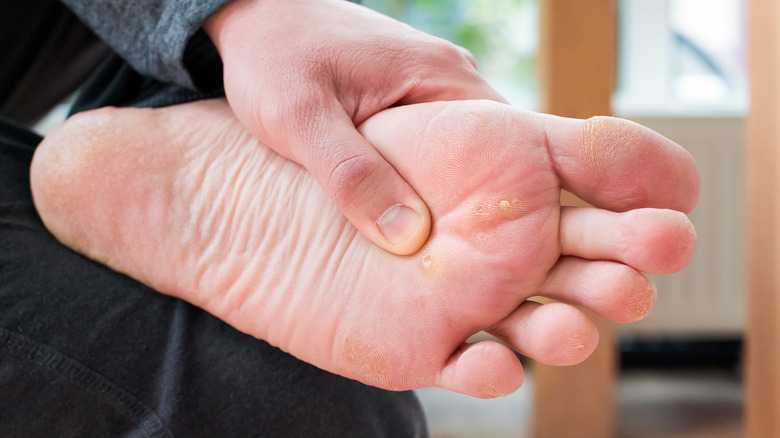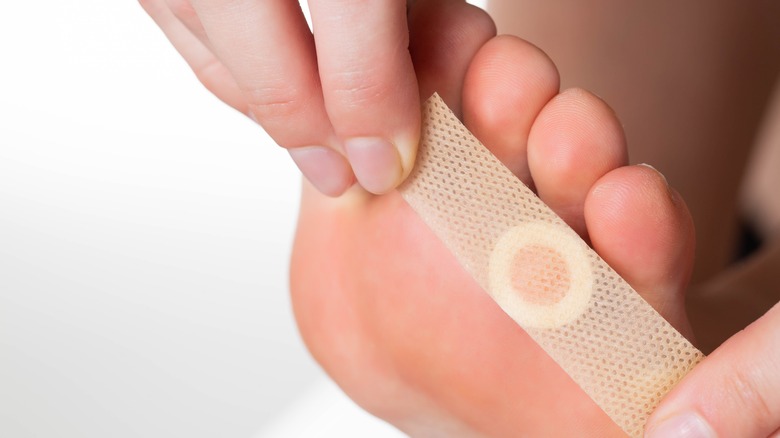What Are Plantar Warts And How Do You Treat Them?
Warts are small, noncancerous (benign) growths on the skin. They can occur anywhere on the body, but are most commonly found on the hands, fingers, and feet. Usually fleshy, rough, and bumpy, warts may have a grainy surface. They can grow singly or in clusters, and some may have a small black dot in the center, which is a blood vessel. Warts are contagious and can spread from one person to another — or from one part of the body to another — through direct contact (via Cleveland Clinic).
Various types of warts exist, including plantar warts. According to a 2018 study published in the Journal of Osteopathic Medicine, plantar warts make up 14% of annual cases, mostly in children and teenagers. It is important to treat plantar warts promptly, as they can become painful and might interfere with daily activities. If you suspect you have a plantar wart, it is best to see a doctor for an accurate diagnosis and appropriate treatment.
What are plantar warts?
Also known as verrucas, plantar warts are small growths that occur on the soles of the feet. According to Healthline, they are caused by a type of human papillomavirus (HPV) that invades the skin through small cuts or breaks. The virus thrives in warm, moist environments, such as public swimming pools, and can be easily spread from one person to another.
Plantar warts typically look similar to calluses and may cause thickened skin at the sole of the feel. The wart may cause discomfort or pain, especially when walking or standing. In some cases, the pressure of standing and walking can cause the wart to grow inward, leading to pain and discomfort (via the Podiatry Health Center). Plantar warts are usually diagnosed through a physical examination of the affected area. In some cases, a dermatologist may perform a biopsy or take a sample of the wart for laboratory testing to confirm the diagnosis.
How are plantar warts treated?
Several treatments for plantar warts include over-the-counter topical creams and salicylic acid pads (via Healthline). Another option is cryotherapy, which involves freezing the wart using liquid nitrogen. This is usually performed by a dermatologist, but might require repeat visits for effective treatment, says Medical News Today.
In some cases, plantar warts may resolve on their own without treatment. However, this can take several months or even years. For larger or more stubborn warts, a doctor may recommend a procedure to remove the wart. Treatment options might include surgical excision, laser therapy, or electrodesiccation (via Mayo Clinic). Most of these procedures are typically performed in a doctor's office or clinic.
To prevent the spread of plantar warts, it is important to keep the feet clean and dry. Avoid walking barefoot in public places, cover the wound with a bandage, don't pick at it, and wash your hands often.



